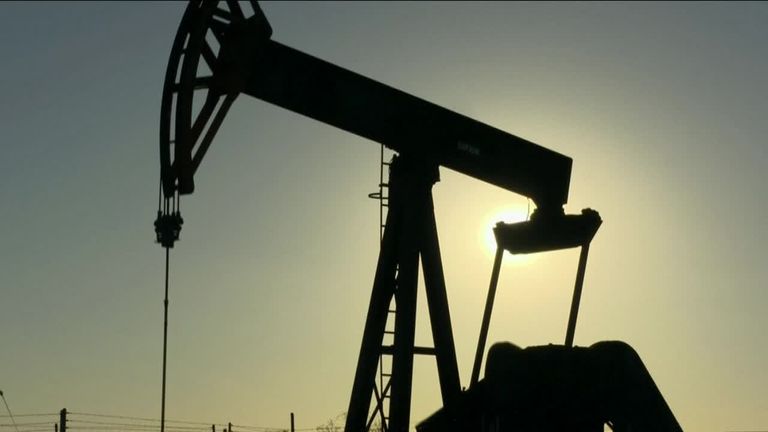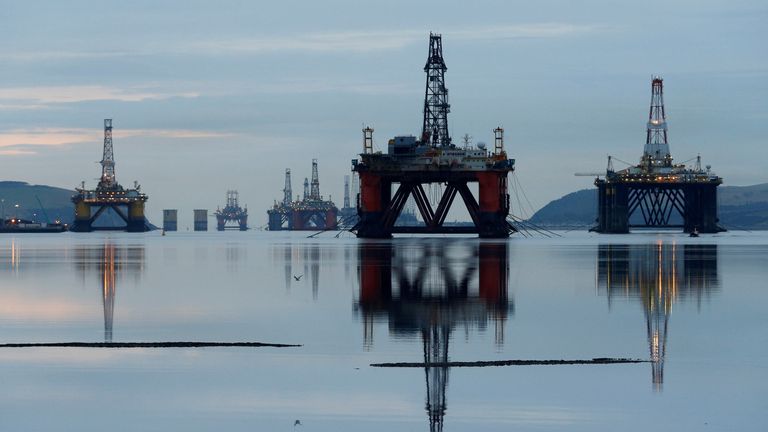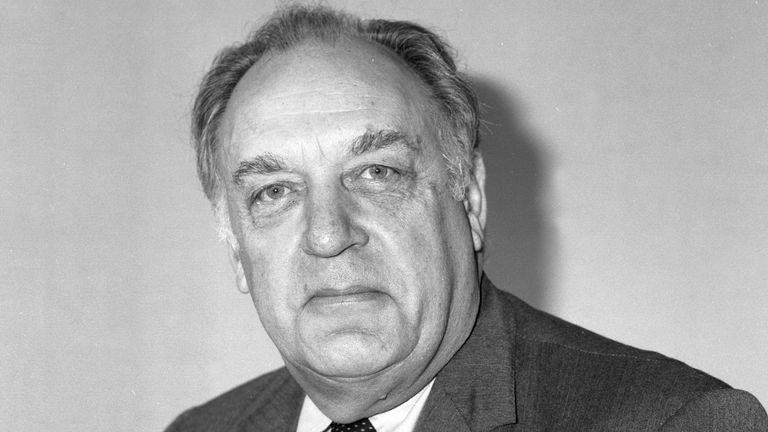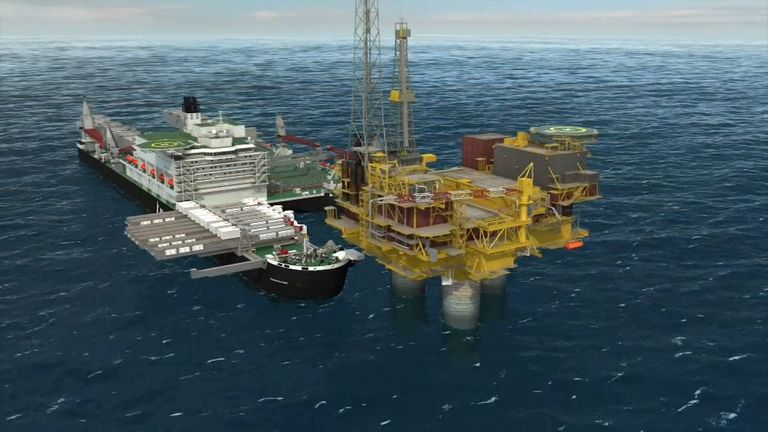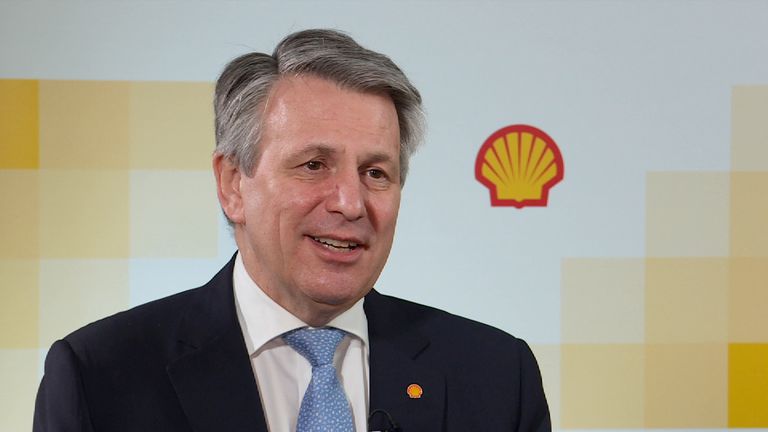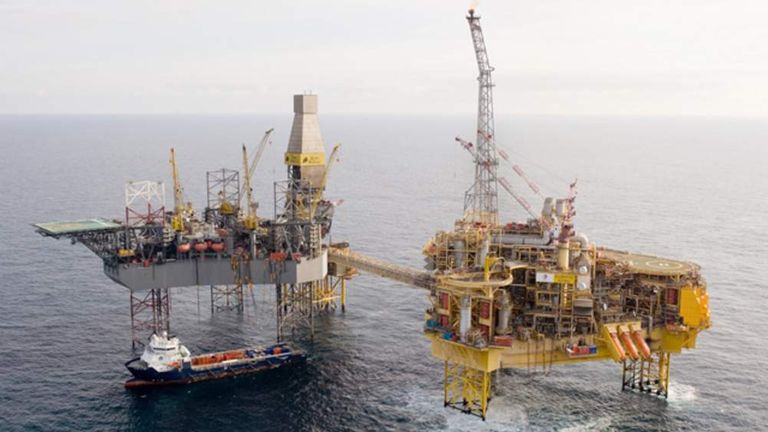The North Sea is generally regarded as one of the world’s most mature oil and gas resources.
One would never know that, though, from the extent to which assets in the region have changed hands during recent years.
There has seen a flurry of activity as the world’s major oil and gas producers, including Royal Dutch Shell, Chevron and BP, have offloaded seemingly mature fields in the region in favour of less capital-intensive or higher-yielding assets elsewhere.
According to Wood Mackenzie, a leading oil industry research provider, the majors have offloaded some $20bn (£15bn) worth of North Sea assets since 2017.
Most of these have been bought by independent operators, such as Chrysaor, which has become the biggest operator in the British North Sea by spending $5.7bn (£4.3bn) during the last four years buying assets from EON, Shell and the US operator ConocoPhillips.
Today the company, named after the brother of the winged horse Pegasus in Greek mythology, went one further – clinching a deal that will make it the biggest quoted independent oil and gas exploration and production company listed in London.
Chrysaor, which is owned by the US private equity group EIG Global Energy Partners, is merging with Premier Oil, a much older and more established business, which has been labouring under a $2.7bn (£2bn) mountain of debt.
The deal is effectively a rescue.
Chrysaor’s shareholders will own at least 77% of the enlarged company while Premier’s stakeholders will emerge with only up to 23% of it.
Most of that latter portion will be held by Premier’s creditors, including a number of hedge funds, with the company’s shareholders owning just 5.45% of the ongoing business.
Premier’s debts will be repaid and cancelled once the deal is completed.
Tony Durrant, the former Lehman Brothers investment banker who has been chief executive of Premier for the last six-and-a-half years, will leave the company once the deal is concluded.
The transaction marks the end of an era.
Premier Oil dates back to 1934 when, as the Caribbean Oil Company, it was founded to pursue oil and gas exploration and production in Trinidad.
It floated on the stock market two years later under the name Premier (Trinidad) Oilfields and, for the subsequent two decades, it focused on production in Trinidad.
Over time, it extended its activities further afield, acquiring its first North Sea operating licence as long ago as 1971.
It was thanks to the charismatic financier Roland Shaw, a rumbustious whisky-swigging former bomber pilot from Boston, that it stepped up its activities in the North Sea.
Mr Shaw, who in his youth was thrown out of the prestigious Princeton University for throwing a party in which 27 women were found in his room, engineered a merger in 1977 with the Ball and Collins consortium to form Premier Consolidated Oilfields.
Its exposure to the North Sea was stepped up further in 1995 through the takeover of Pict Petroleum, another North Sea operator, but by then Mr Shaw had also taken the company into considerably more exotic locations such as Cuba, Burma, Albania, Cambodia and China.
More recently, it has focused on four key areas – the British North Sea, the Falkland Islands, Indonesia and Vietnam.
At the same time, however, it has been dogged by its borrowings that, following the 2014 oil price crash, have mounted as it was forced to complete expensive projects at the same time as its revenues were falling.
At various points in recent years, it has looked to have been getting to grips with its debt, while earlier this year it struck a deal to buy a package of assets in the North Sea from BP.
But then came COVID-19 and another oil price crash.
Enter Chrysaor.
Putting together these two highly complementary businesses will create a company whose combined production at the end of June would have been more than 250,000 barrels of oil per day and whose combined sales last year would have topped $1.76bn (£1.34bn).
Its production costs, moreover, were $10.50 per barrel – enough to be profitable even at the current depressed crude price.
The enlarged company will also own nearly 20% of one of the UK’s biggest gas assets – the Elgin-Franklin complex off the coast of Aberdeen, although the biggest single shareholder in the development will remain Total, one of the few majors that has been increasing its presence in the North Sea.
From Chrysaor’s point of view, apart from giving it more scale in the British North Sea, the deal also gives it a platform – via Premier’s other assets – to grow elsewhere around the world.
Linda Cook, Chrysaor’s chairman and a former executive at Shell, said: “This transaction is the next step in our aspiration to develop a new independent E&P company with global relevance.
“It significantly advances our leading position in the North Sea, where we will continue to reinvest, and expands our geographic footprint to Asia and Latin America.
“We are excited by the Premier assets in these regions and view them as the foundations upon which to build material portfolios and further diversify the company.”
The transaction has also captured the imagination of sector followers – to whom Chrysaor was already a fascinating business.
Sam Wahab, oil and gas industry analyst at the broker SP Angel, said: “The current operating environment has given rise for opportunistic M&A activity and the Premier/Chrysaor merger represents the most interesting of 2020 in our view.
“Whilst the merger will result in significant scale and diversification, through the combination of material operated and non-operated cash generative production hubs in the UK North Sea, Premier Oil’s shareholders will only benefit from limited exposure.
“Indeed, a 5.45% equity exposure in the combined group would infer a £2.6bn combined market capitalisation, based on Premier Oil’s current £156m market capitalisation.”
One potential loser from the deal, however, is BP.
Its planned sale of some North Sea assets to Premier is now off.
Others in the industry, meanwhile, will note a pleasing circularity in one aspect of today’s deal.
Among Chrysaor’s other activities is a stake in Acorn, a carbon capture and storage project using existing oil and gas infrastructure at St Fergus gas terminal near Peterhead.
The original Acorn field was given its name by Mr Shaw when it proved – after many years of trying – to be the old Premier Consolidated’s first commercial discovery in the region after seven previous failed attempts.
The idea came from his wife, Felicitas, who said the discovery reminded her of an old saying in her native Germany: “Even a blind pig finds an acorn every now and then.”

